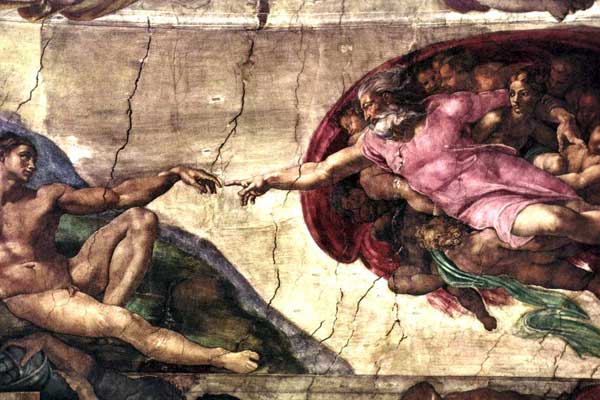
Creationism goes global
Published: February 9, 2012
In the beginning there was creationism. Now we have young Earth creationism, intelligent design and creationism interpreted through the lens of other world religions.
Professor Ronald Numbers -- the F. Ross Johnson-Connaught Distinguished Professor in American Studies at the University of Toronto’s Centre for the Study of the United States and the Hilldale Professor of the History of Science and Medicine at the University of Wisconsin --spoke Feb. 1 to a standing-room only audience about creationism and its appeal around the world.
“We have seen in the last two decades a rapid spread of creationism beyond the United States and beyond Christianity to other religions to the present time where it is a global phenomenon,” said Numbers in a talk entitled Creationism Goes Global. “But the big story in the last 20 years is the booming enterprise of creationism in the Islamic world.”
For example, in the 1980s the Turkish Minister of Education asked the Institute for Creation Research in the United States to translate Scientific Creationism into Turkish. Since then creationism has been taught in Turkey’s high school science curriculum.
Numbers , the son of a Seventh Day Adventist preacher, attended creationist schools from first grade through college and has been interested in the movement since. He noted that although Charles Darwin published On the Origin of Species in 1859, the backlash against organic evolution didn’t happen until the early 20th century.
“Darwin had his critics in 19th and early 20th centuries, but there was no organized anti-evolution movement until the 1920s,” said Numbers. “The fundamentalist Christians who led this movement were not like the anti-evolutionists we know today.”
He noted that these early followers openly accepted the scientific evidence for the antiquity of life on earth and did not attach any geological significance to Noah’s flood. It was a lesser known theory -- one that claimed the creation timeline was contiguous and claimed that the geological evidence used to establish the age of the Earth could be attributed to Noah’s flood -- that would become what we know as creationism today.
Ken Ham, founder of the Kentucky based Christian group Answers in Genesis, and more recently, the plan to construct a US$150-million life size replica of Noah’s Ark, is the most notable advocate of this later version of creationism, also known as young Earth creationism.
“He’s the rock star of the anti-evolution movement internationally,” said Numbers.
Young Earth creationism has followers around the world, in places such as Australia, South Korea and South America. It has also been adopted by other religious groups -- for example, a group of Israeli and American Jews who formed the Torah Science Foundation in 2000.
“They like to say it is quite different from Christian creationism because they mix some of the Kabbalah [a set of esoteric, mystical religious teachings] into their doctrine,” said Numbers.
In the early 1990s, some anti-evolutionists decided to contest evolution by setting aside their biblical references and formed a new creationist movement based on the intelligent design theory. Intelligent design focused on non-biblical arguments against evolution. By attributing creation to an intelligent designer and omitting the Christian-Judaic tone from their arguments, the anti-evolution movement became attractive to non-Christian groups, such as Hindus and Muslims.
“The more radical goal of these people is not to just oppose evolution,” said Numbers. “They want, as one of them said, to reclaim science in the name of God.”
The variety seen in adherents to creationism is intriguing, said one of Numbers’ colleagues.
“I think it’s particularly interesting how [creationism] takes on different forms when being interpreted in different religious contexts -- not just by Christians around the world, but also Muslims, Hindus and Jews of very particular sorts,” said Pamela Klassen, a professor in the Department for the Study of Religion.
Numbers said he isn’t against creationism per se; he just believes it shouldn’t be taught as science.
“I’m a historian, I teach about creationism,” he said. “In religion courses I think it’s fair, but I think it really gets confusing when you introduce it into science courses.”



